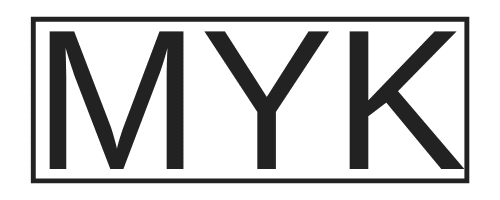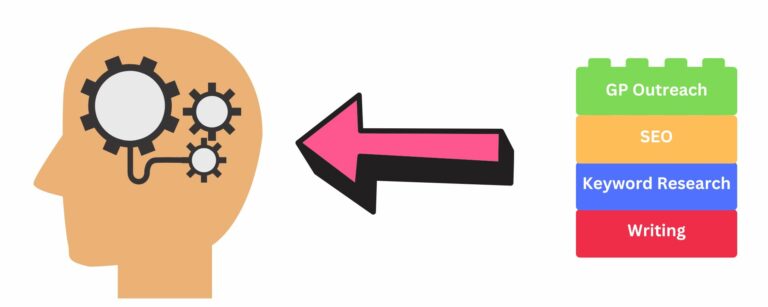11 Best Tax Deductions For Freelancers
There are only two certainties in life – death and taxes.
Unless you run a business!
Tax deductions reduce your taxable income and save business owners money. Tax season can lead to anxiety and confusion for many freelancers. Filing taxes is challenging; deciding what to claim and how to maximize your deductions is daunting. To help you, we have created a list of the best tax deductions for freelancers.
As a business owner and fellow freelancer, I understand the importance of maximizing tax write-offs. I have operated businesses all over the world, and no matter where you operate, understanding what you can and cannot deduct is one of the keys to successfully navigating tax season.
What Are Tax Deductions?
A tax deduction is an expense that can be subtracted from your income before you are taxed, reducing the taxes you have to pay. This differs from after-tax expenses that do not decrease your taxable income. Tax deductions reduce your tax bill and keep more money in your pocket.
Every country has different laws that dictate what a tax-deductible business expense is. I recommend hiring a reputable accountant to help you understand a legal tax expense in your jurisdiction. If you are comfortable filing your taxes, you may also want to consider tax software like – FreshBooks, QuickBooks, or Xero.
Generally, small business owners can deduct expenses incurred to make the business operational or maintain it once it is up and running. Personal expenses are not deductible from your income. Freelancers may be considered small business owners and can claim the self-employment tax deduction.
Tax deductions come in various forms and are available for different types of expenses related to running a business. Some common examples include office supplies, travel expenses, advertising costs, insurance premiums, and even certain educational expenses.
Keep Accurate Records
The best business practice is keeping good records of your income and expenses. They are critical for running a sound business and ensuring correctly submitted taxes.
Our restaurant uses a payment gateway that tracks all revenue and a simple Excel sheet for tracking expenses. Our bookkeeper enters all the costs into the Excel sheet and categorizes them according to the direction of our accountant. There are more automated processes, but this tried and true method is what we use. For freelancing income, I track all revenue through payment gateways and manually track expenses through Excel.
Don’t Leave It To The Last Minute

While accounting doesn’t have to be complicated, it’s one of those things that can pile up, and most people leave recording to the end of the tax year and scramble to find all their receipts and enter the information. As long as you have a sound record-keeping system, this doesn’t cause a problem, but I recommend setting aside a day once every month or two, and you will save yourself a lot of stress at year-end.
How Can Tax Deductions Help A Freelance Business?
Tax deductions play a crucial role in helping freelance businesses save money by reducing their taxable income and lowering their overall tax liability. Every dollar counts when you’re running a freelance business, so understanding how these deductions can benefit your bottom line is essential.
The Importance of Reducing Taxable Income
Reducing taxable income is essential to decreasing the amount of taxes you pay. This means more cash flow for business growth or personal use. By claiming eligible expenses as tax deductions, freelancers can lower their taxable income and increase business cash flow.
Fueling Growth with Strategic Deductions
- Maintaining competitiveness: Taking advantage of relevant tax deductions helps maintain competitiveness by allowing freelancers to keep up with industry trends without breaking the bank.
- Promoting innovation: With reduced tax liabilities comes increased flexibility for investing in new technologies and ideas that drive innovation within one’s field.
- Better employee retention: Using saved funds from tax breaks may allow freelancers to offer better benefits or higher wages, which can help attract and retain top talent.
Tax deductions allow freelancers to save on taxes while investing in their business’s growth.
What Are Freelancer Tax Deductions?
Freelancers are considered self-employed and are eligible for certain tax deductions that can help them reduce their taxable income and save money.
Freelancers must maintain accurate records throughout the year to maximize their potential savings and ensure compliance with IRS guidelines. You must detail all relevant business-related expenses incurred while earning money as a freelancer.
Differentiating Between Personal And Business Expenses
A good rule of thumb to determine whether an expense is deductible is to ask yourself if it was necessary to do your freelance work and if it was incurred exclusively for that purpose. If yes, then chances are high that it will qualify as a deductible expense.
Industry-Specific Deductions
In addition to general deductions available to all freelancers, industry-specific deductions may be tailored explicitly toward certain types of freelance work. For instance:
- Writers: May be able to deduct expenses related to research materials or subscriptions necessary for their writing projects.
- Photographers: Can claim deductions on photography equipment such as cameras, lenses, lighting gear, etc., along with editing software costs.
- Tutors/Coaches: Might qualify for deductions on educational materials, online courses, and certification fees required to maintain their expertise in teaching or coaching.
To ensure that you’re taking full advantage of any industry-specific tax breaks available in your line of work, consult a knowledgeable tax professional who can guide you through this process and help maximize your tax savings as a freelancer.
11 Best Tax Deductions For Freelancers
Here are the top 11 tax deductions for freelancers:
1 – Health Insurance Premiums
If you’re self-employed and not eligible for an employer-sponsored health plan, you can deduct the cost of your health insurance premiums. This includes coverage for yourself, your spouse, and your dependents.
2 – Phone Bill
If you use your phone for business, you can claim this against your income. If your phone is for personal and business use, you can claim a percentage of your bill based on usage. Track business-related calls and texts on your phone bill to ensure accurate expense claims.
3 – Software
The cost of software subscriptions or one-time purchases required to run your freelance business is deductible as long as they are necessary and ordinary expenses for running your business.
4 – Office Supplies
Purchases made for office supplies such as paper, pens, printer ink cartridges, or other materials needed in daily operations are deductible expenses. Keep receipts from these purchases organized throughout the year to make claiming this deduction easier during tax season.
5 – Home Office Deduction
If you use part of your home exclusively for conducting freelance work (and meet specific IRS requirements), then you can take advantage of the home office deduction. This could include mortgage interest or rent payments, utilities costs like electricity bills, or internet fees associated with maintaining that workspace.
6 – Training Programs and Educational Expenses
If you attend training courses, workshops, or seminars to improve your skills as a freelancer, these costs may be deductible. Any materials purchased for continuing education may also qualify for this deduction.
7 – Business Credit Card Interest
The cost of the interest paid on a card used only for business-related transactions can be claimed as a deduction when filing taxes. Keep personal and business expenses separate on different cards to claim this deduction accurately.
8 – Travel Expenses
You can deduct travel expenses related to your freelance work, such as airfare, lodging accommodations, and meals while away from home if necessary for business activities. Remember to keep detailed records of all travel-related receipts and documentation to substantiate these deductions during an audit.
9 – Self-Employment Tax
FICA (Social Security & Medicare) taxes self-employed individuals pay are partially deductible. In addition, property owners who pay real estate taxes associated with their home office space can also take advantage of this deduction opportunity.
10 – Miscellaneous Expenses
Freelancers may take advantage of miscellaneous deductions, such as the cost of professional services, including legal or accounting fees associated with running a business.
11 – Professional organization fees
The cost of joining professional organizations relevant to your field is generally tax-deductible, provided it’s directly connected with maintaining or improving industry knowledge needed in running one’s freelance enterprise.
How to Claim Tax Deductions
This section will provide an overview of the steps necessary to maximize your deductions.
Create an Organized Record-Keeping System
Establish an organized record-keeping system to track and report your income and deductible expenses accurately. Use accounting software, maintain a spreadsheet, or store receipts and invoices in physical folders. Choose an approach that suits you while still allowing simple retrieval when required.
Differentiate Between Personal and Business Expenses
Keep personal expenses separate from business activities. Open up dedicated bank accounts for both purposes so transactions are easily distinguishable during tax time.
Maintain Accurate Receipts & Documentation
- Receipts: Keep all receipts related to deductible business expenses in one place – digitally or physically – and categorize them by expense type (e.g., office supplies).
- Invoices: Maintain accurate invoicing records detailing the services provided and corresponding client payments.
- Mileage Logs: If claiming vehicle-related deductions like mileage reimbursement or lease payments on work vehicles used exclusively for business purposes (IRS Standard Mileage Rates), maintain detailed logs of all business-related trips.
Understand the IRS Guidelines for Deductible Expenses
To ensure you’re claiming deductions correctly, familiarize yourself with the IRS guidelines on deductible expenses. This will help you understand the eligible costs and avoid potential issues during an audit.
Consult a Tax Professional if Necessary
If you need clarification on specific deductions or assistance navigating tax laws, consider consulting a qualified tax professional who can provide guidance tailored to your unique situation as a freelancer.
FAQs
What can a freelancer write off on taxes?
Freelancers can write off various expenses related to their business, such as home office costs, travel expenses, equipment and software purchases, advertising and marketing fees, professional development courses or certifications, and health insurance premiums. It’s essential to keep accurate records of these expenses for tax purposes.
What things are 100% tax write-Offs?
Some items that are typically 100% tax-deductible include office supplies (like paper or printer ink), work-related subscriptions (such as online tools or industry publications), business phone and internet services, legal fees directly related to your freelance work, bank fees for your business account(s), and certain meals during client meetings.
Do Freelancers Get Tax Breaks?
Yes. Freelancers can access several tax breaks, including deductions for qualified business income (QBI) under the Tax Cuts & Jobs Act.
What Is the 20% Self-Employment Deduction?
The 20% self-employment deduction, also known as the Qualified Business Income Deduction (QBID), allows eligible freelancers to deduct up to 20% of their net qualified business income from their taxable income.
Conclusion
Getting paid as a freelancer is amazing, but the tax man will eventually come knocking. As a freelancer, knowing what expenses you can deduct for your taxes will save you money and make your life easier. You can reduce your taxable income by claiming self-employment tax deductions and keeping more of your hard-earned money.
By writing off your business expenses, you can reduce your taxable income and lower the amount of taxes you owe. Keep accurate records of your income and expenses throughout the year. Consider working with a tax professional to ensure you claim all the deductions you are entitled to.
Happy filing!







